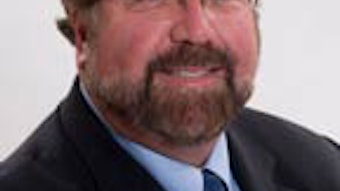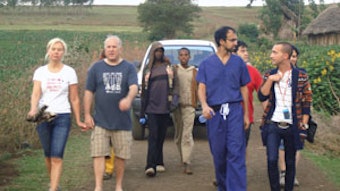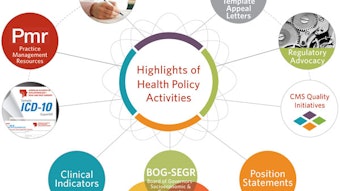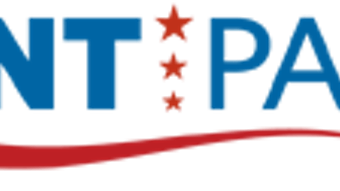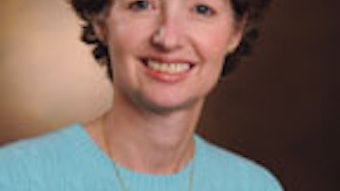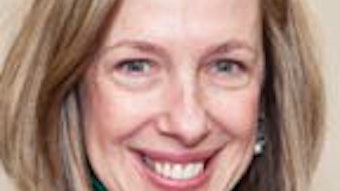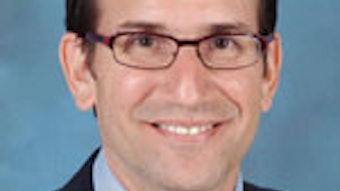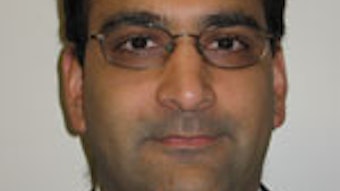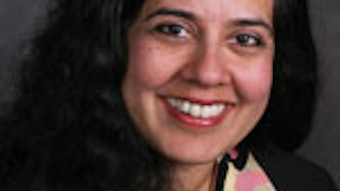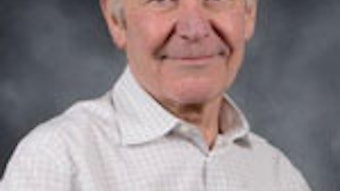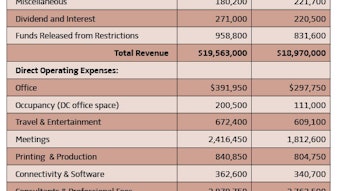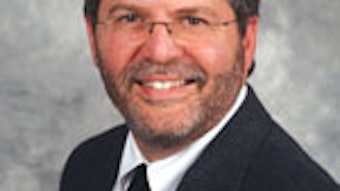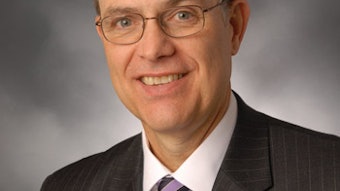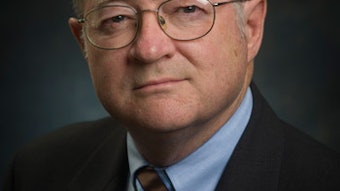Enhancing the Value of the Foundation’s Education Activities: A Progress Report
In our ongoing efforts to address the results of the 2013 Education Needs Assessment Initiative, the Foundation will introduce enhancements to current education activities that are key drivers of engagement with the AAO-HNS/F. The Needs Survey measured the value of the Foundation Education Program on three levels: how a member rates the program on its own merits; in comparison to other organizations’ education activities; and on the likelihood to recommend to others. The Education Steering Committee (ESC), comprised of the eight Education Committee chairs and under the leadership of Sonya Malekzadeh, MD, has reviewed all of the current education products offered by the Foundation based on the data gathered throughout the needs assessment. They developed a comprehensive list of enhancements to current activities and other changes that will increase the effectiveness of the Foundation’s education offerings. Plans have been set to enhance existing education activities that have a strong influence on member engagement. A brief description of these enhancements follows. AcademyQ® Since its introduction in 2012, AcademyQ has seen immense growth and popularity. Those who have used the mobile app appreciate it for “offering a representative set of questions across all subspecialties” and “providing consistently high-quality content.” Knowing there is a need for constant updates in order to keep the app a useful product, the Foundation will add hundreds of new questions this year. Also exciting is the ability now to offer the app for operating systems other than Apple. This will allow the Foundation to build the new version of AcademyQ during the next several months. Home Study Course It’s probably no surprise to anyone that the Home Study Course (HSC) is most otolaryngologists’ first experience with the Foundation and a huge driver of member engagement with the Academy. Members report that it “provides consistently high-quality content” and “offers a reasonable price for the course.” HSC also succeeds in “covering the appropriate depth of content within each of the specialties.” A Home Study Task force has been convened under the leadership of Brad W. Kesser, MD, and Richard V. Smith, MD, both members of the Education Steering Committee (ESC). This Task Force is charged with developing a plan to update and enhance the Home Study Course experience for a broader base of members. The Task Force conducted a survey with all current HSC subscribers. The survey yielded excellent information that will be used when developing a road map for the future of the activity. The Task Force plans to present its report to the ESC in September. Annual Meeting & OTO EXPOSM Program Content The Annual Meeting & OTO EXPOSM is also a strong driver of member engagement. About one-third of members attend the Annual Meeting every year while an additional 40 percent attend every few years. For those who attend the meeting, the part of the experience that has significant influence is “providing consistently high-quality content” and “offering an appropriate balance of clinical and practice management education.” Information from the education needs assessment has flowed into a comprehensive assessment of the annual meeting. One component of this assessment is to take a look at how Annual Meeting education content can be repurposed and offered to a wider member audience. Look for greater opportunities to access this content soon. Clinical Otolaryngology Online (COOL) COOL is designed for the non-otolaryngologist. For those who have used COOL, the resource influences their engagement in the education program. These individuals seek a resource that “provides an easy-to-understand assessment of otolaryngology-related topics” and “provides adequate information to make an appropriate otolaryngology referral.” There is an increased emphasis at the Academy on reaching out to non-physician healthcare providers who work in otolaryngology-head and neck surgery. A re-evaluation and the development of new COOL courses is a part of this effort. Coding and Reimbursement Workshops Those respondents who have attended the Coding and Reimbursement Workshops indicate that their experience had a significant influence on their overall engagement with the Foundation. Due to the timeliness and imperative regarding the adoption of ICD-10 in physician practices, the Coding and Reimbursement Workshops now has a third session on ICD-10 implementation. This full-day workshop assists both physicians and their staffs in preparing for the transition. eBooks It is very exciting to report that three AAO-HNSF publications are being updated and re-released in the next 12 months. Because of a formal publishing agreement the Foundation has entered into with Thieme Publishing, two books will be published online and in print this year. Geriatric Care Otolaryngology is being updated under the leadership of Robert T. Sataloff, MD. Otolaryngology Lifelong Learning Manual, a revised version of the Maintenance Manual for Lifelong Learning, will also be published under the leadership of Sonya Malekzadeh, MD, and the Education Steering Committee. Members of the eight Education Committees served as chapter reviewers and authors. The Quick Reference Guide to Neck Dissection Classification and TNM Staging of Head and Neck Cancer is also being revised under the leadership of Daniel B. Deschler, MD. This will be the fourth edition of this helpful resource that will include the most recent AJCC Cancer Staging Tables. Online Education Online Education including the Online Lecture Series (OLS), which are recordings of Annual Meeting Instruction Courses and Online Courses that are developed by Education Committee members contribute influence by “presenting content logically so that it is easy to follow,” “providing consistently high-quality content,” and “covering the appropriate breadth of content across specialties.” A clear message from the Needs Assessment Survey was the strong recommendation that the Foundation education activities be more web-based and more engaging. Look for new online courses that are cased-based, interactive, and self-paced. A new Learning Management System will be built that will offer many more opportunities to develop high quality and engaging activities. In addition, the Professional Development pages of the new entnet.org have been redesigned to provide access to the resources members need to engage in education with the Foundation. Continue to look for improvements to current popular education products and the introduction of new eLearning technology to enhance relevance to members.

In our ongoing efforts to address the results of the 2013 Education Needs Assessment Initiative, the Foundation will introduce enhancements to current education activities that are key drivers of engagement with the AAO-HNS/F. The Needs Survey measured the value of the Foundation Education Program on three levels: how a member rates the program on its own merits; in comparison to other organizations’ education activities; and on the likelihood to recommend to others.
The Education Steering Committee (ESC), comprised of the eight Education Committee chairs and under the leadership of Sonya Malekzadeh, MD, has reviewed all of the current education products offered by the Foundation based on the data gathered throughout the needs assessment. They developed a comprehensive list of enhancements to current activities and other changes that will increase the effectiveness of the Foundation’s education offerings.
Plans have been set to enhance existing education activities that have a strong influence on member engagement. A brief description of these enhancements follows.
AcademyQ®
Since its introduction in 2012, AcademyQ has seen immense growth and popularity. Those who have used the mobile app appreciate it for “offering a representative set of questions across all subspecialties” and “providing consistently high-quality content.” Knowing there is a need for constant updates in order to keep the app a useful product, the Foundation will add hundreds of new questions this year. Also exciting is the ability now to offer the app for operating systems other than Apple. This will allow the Foundation to build the new version of AcademyQ during the next several months.
Home Study Course
It’s probably no surprise to anyone that the Home Study Course (HSC) is most otolaryngologists’ first experience with the Foundation and a huge driver of member engagement with the Academy. Members report that it “provides consistently high-quality content” and “offers a reasonable price for the course.” HSC also succeeds in “covering the appropriate depth of content within each of the specialties.”
A Home Study Task force has been convened under the leadership of Brad W. Kesser, MD, and Richard V. Smith, MD, both members of the Education Steering Committee (ESC). This Task Force is charged with developing a plan to update and enhance the Home Study Course experience for a broader base of members. The Task Force conducted a survey with all current HSC subscribers. The survey yielded excellent information that will be used when developing a road map for the future of the activity. The Task Force plans to present its report to the ESC in September.
Annual Meeting & OTO EXPOSM Program Content
The Annual Meeting & OTO EXPOSM is also a strong driver of member engagement. About one-third of members attend the Annual Meeting every year while an additional 40 percent attend every few years. For those who attend the meeting, the part of the experience that has significant influence is “providing consistently high-quality content” and “offering an appropriate balance of clinical and practice management education.” Information from the education needs assessment has flowed into a comprehensive assessment of the annual meeting. One component of this assessment is to take a look at how Annual Meeting education content can be repurposed and offered to a wider member audience. Look for greater opportunities to access this content soon.
Clinical Otolaryngology Online (COOL)
COOL is designed for the non-otolaryngologist. For those who have used COOL, the resource influences their engagement in the education program. These individuals seek a resource that “provides an easy-to-understand assessment of otolaryngology-related topics” and “provides adequate information to make an appropriate otolaryngology referral.”
There is an increased emphasis at the Academy on reaching out to non-physician healthcare providers who work in otolaryngology-head and neck surgery. A re-evaluation and the development of new COOL courses is a part of this effort.
Coding and Reimbursement Workshops
Those respondents who have attended the Coding and Reimbursement Workshops indicate that their experience had a significant influence on their overall engagement with the Foundation.
Due to the timeliness and imperative regarding the adoption of ICD-10 in physician practices, the Coding and Reimbursement Workshops now has a third session on ICD-10 implementation. This full-day workshop assists both physicians and their staffs in preparing for the transition.
eBooks
It is very exciting to report that three AAO-HNSF publications are being updated and re-released in the next 12 months. Because of a formal publishing agreement the Foundation has entered into with Thieme Publishing, two books will be published online and in print this year. Geriatric Care Otolaryngology is being updated under the leadership of Robert T. Sataloff, MD. Otolaryngology Lifelong Learning Manual, a revised version of the Maintenance Manual for Lifelong Learning, will also be published under the leadership of Sonya Malekzadeh, MD, and the Education Steering Committee. Members of the eight Education Committees served as chapter reviewers and authors.
The Quick Reference Guide to Neck Dissection Classification and TNM Staging of Head and Neck Cancer is also being revised under the leadership of Daniel B. Deschler, MD. This will be the fourth edition of this helpful resource that will include the most recent AJCC Cancer Staging Tables.
Online Education
Online Education including the Online Lecture Series (OLS), which are recordings of Annual Meeting Instruction Courses and Online Courses that are developed by Education Committee members contribute influence by “presenting content logically so that it is easy to follow,” “providing consistently high-quality content,” and “covering the appropriate breadth of content across specialties.”
A clear message from the Needs Assessment Survey was the strong recommendation that the Foundation education activities be more web-based and more engaging. Look for new online courses that are cased-based, interactive, and self-paced.
A new Learning Management System will be built that will offer many more opportunities to develop high quality and engaging activities. In addition, the Professional Development pages of the new entnet.org have been redesigned to provide access to the resources members need to engage in education with the Foundation. Continue to look for improvements to current popular education products and the introduction of new eLearning technology to enhance relevance to members.

